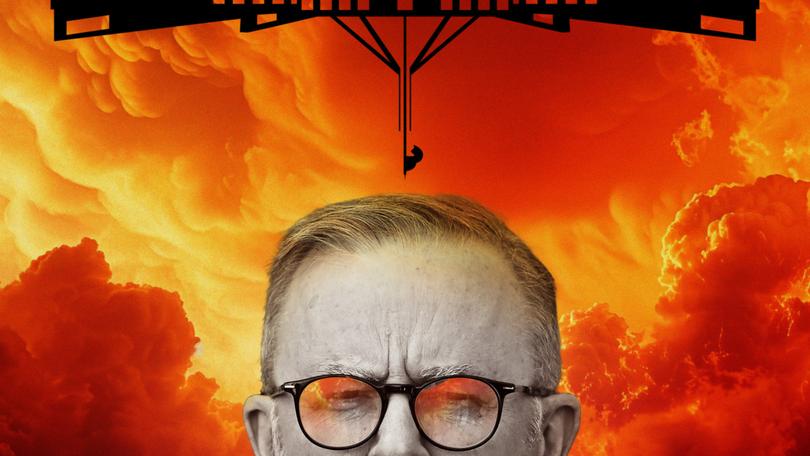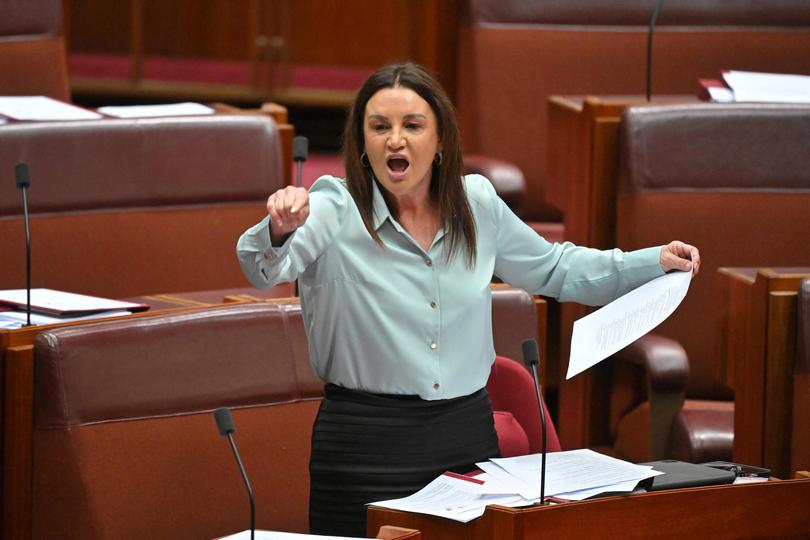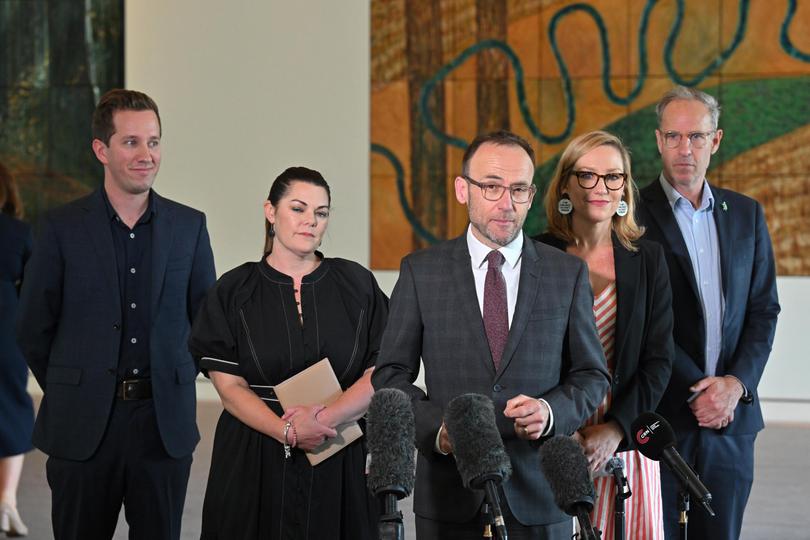Australian Parliament in meltdown as Labor races to force through monster package of Bills
With Labor trying to ram 36 Bills through Parliament, confusion reigned as the nation’s ruling institution took on the frantic air of a student all-nighter.

“It’s going to be a bit of a ride,” promised Finance Minister Katy Gallagher on ABC radio at 7.30am on parliament’s final sitting day, in what turned out to be the understatement of the year.
News that Labor would suddenly try to force through a dizzying raft of 36 bills — including controversial major laws that been stalled for months in delicate negotiations — sent parliament into a tailspin.
By 9am, Independent Tasmanian senator Jacqui Lambie had kicked off a morning of furious horse-trading with a tirade of righteous anger over Labor sending the “mother of all guillotines” on “undercooked” bills only at 8.30pm the night before.
Sign up to The Nightly's newsletters.
Get the first look at the digital newspaper, curated daily stories and breaking headlines delivered to your inbox.
By continuing you agree to our Terms and Privacy Policy.The Albanese government had tabled more guillotines in its first three years than the Coalition did in nine, she railed, referring to the tactic of closing the floor for debate on a bill in order to go straight to a vote.
“This government likes to pack a lot of legislation together to avoid scrutiny,” she charged. “These aren’t small bills, they aren’t tweaks to the legislation that you can call non-controversial. They are big and they are massive,” Ms Lambie said in a crescendo of indignation.
Among the bills in the astonishingly large package were some of the most consequential new laws of the year – a social media ban for under-16s, new migration laws that include powers to pay third countries to receive non-citizens, reforms to the functioning of the Reserve Bank of Australia.
“It is dangerous to shove bills down our throats. It is dangerous to shove bills down the Australians’ throats without us properly going through and actually having a good look at it and actually putting it under the microscope.”
Simon Birmingham, leader of the Coalition in the Senate, chimed with a one-liner offer of support. “What Jacqui said!”
The Senate was cranky, the division bells incessant. Independent Senator Lidia Thorpe, locked out of the chamber for misbehaviour, suddenly burst into the press gallery to yell “Free, free Palestine!” adding to the sense of impending chaos.
For several hours, confusion reigned in the nation’s ruling institution. Seasoned senators and ministers were momentarily flummoxed by fevered debate over whether to allow debate or not.
The frantic mood took on the air of a student pulling an all-nighter to cram for their final exams – with the sobering difference that it was the nation’s legislators racing to make decisions that will have a real-world impact on millions of lives.
Katy Gallagher, on the offence for the government, countered that it was completely normal to stack so much into the end of the three-year parliamentary term, that there had been plenty of time for debate already over months of scrutiny.
Others challenged that claim.
Legislators only had first sight of the full social media ban proposal last week. A Senate inquiry on the world-leading plan was squeezed into three days, and key aspects, including the major question of how to actually enforce an age limit, have yet to be agreed on.
“I thought this was a good idea. I think a lot of people out there thought it was a good idea until we looked at the detail, and let’s be honest, there is no detail,” quipped Lambie.

Meanwhile, only on Wednesday, advocacy groups and human rights lawyers had warned the government it would face legal challenges over a “rushed” trio of “Trump-style” migration bills that could rip families apart.
Behind the angry scenes in the Senate, a high-octane round of wheeling and dealing produced a compromise to allow the social media ban and migration laws to be dealt with separately in exchange for a slimmed down guillotine package of 27 bills.
The Greens were crucial to the deal.
At a snap press conference at 1.40pm, a victory line-up of senior Greens announced they would wave through close to 30 bills after securing a $500 million government commitment to electrify 50,000 social housing properties, saving about $1,800 on household power bills.
Among a raft of concessions to help Labor clear its legislative logjam, they won a ban on fossil fuel funding under Future Made in Australia and agreed to support a contentious plan to split the Reserve Bank into two boards after the government agreed to retain the Treasurer’s never before used power to overrule the bank’s decisions.
They had previously refused to support the change unless the Treasurer immediately used that power to force an interest rate cut.

Greens treasury spokesman Nick McKim insisted the party still continued to “fight for renters and mortgage holders”.
“Greens pressure works,” said party leader Adam Bandt, before the group ran off to the final Question Time of the year.
A brutal sparring match between an ebullient Anthony Albanese and defiant opposition leader Peter Dutton ensued.
Important bills on Labor’s environment protection agency and a proposal on electoral reforms to change how political campaigns are funded had to be punted until February.
But with a major legislative package, the social media ban and migration laws set to be passed, the Prime Minister was in a triumphant mood about “turning promises into progress” in the face of the opposition “over the last 2.5 years just saying no whenever they could.”
Mr Dutton hit back over Mr Albanese’s failed Voice referendum that had “divided” the country. “Why not call an election now?” he retorted.
House Speaker Milton Dick chided baying politicians like schoolchildren, threatening to throw them out for bad behaviour.
What were the well-behaved, real schoolchildren sitting in the gallery of Thursday’s proceeding thinking?
Generation Z is increasingly disconnected from politics, with under 50% of 18- to 34-year-olds having no connection with a single registered political party, points out leading pollster and former Victorian Labor strategist Kosmos Samaras, from the RedBridge consultancy group.
Which raises the question of whether chaotic scenes in parliament will help improve that engagement?
“Public is trust towards institutions and politics in general is probably the lowest we have ever seen,” said Mr Samaras.
“People are looking for politicians who take bold steps to try and change the deep structural problems that Australians are facing, particularly young Australians,” he said.
Politicians from all parties today would argue that that is exactly what they were doing.
And when the dust settles on what was actually passed into law on Thursday, Australian voters will be the ones to give their verdict.

